Time:2023-11-17 Source: Author: Views:
On November 15, the Seminar of WTO’s World Trade Report 2023 was held at Shanghai International Dispute Resolution Center, with the main theme ‘Create a Secure, Inclusive and Sustainable Future’. It was co-hosted by WTO, China Society for World Trade Organization Studies, China Law Society, WTO Law Research Society, Institute of Word Economy of Shanghai Academy of Social Sciences, and Shanghai University of International Business and Economics, and was co-sponsored by International Chamber of Commerce, Shanghai International Economic and Trade Arbitration Commission, Research Center of Shanghai University of International Business and Economics, and Beijing DHH Law Firm The seminar was undertaken by the International Economic and Trade Governance Research Center of Shanghai University Think Tank.
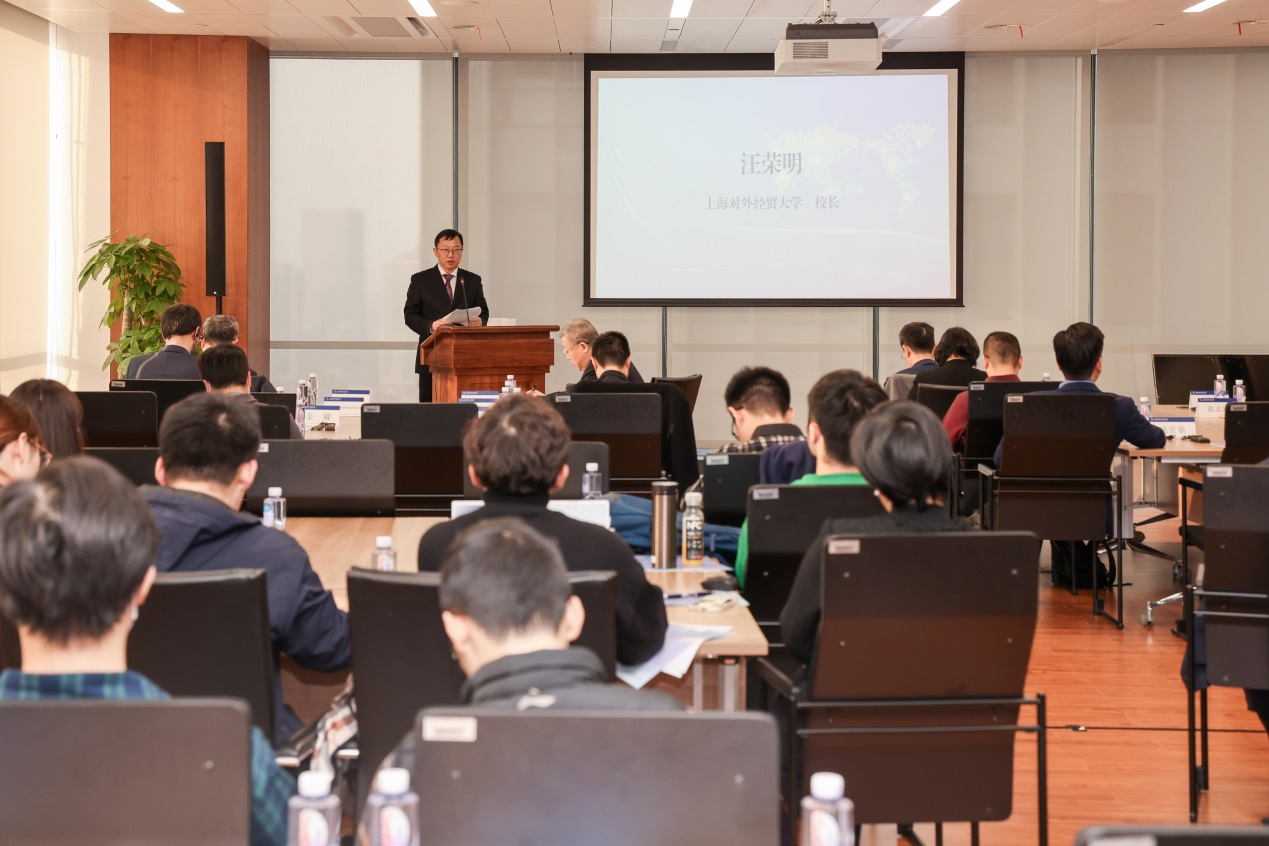
The seminar was attended on site by Chongquan, President of China Society for World Trade Organization Studies, Yu Miaojie, President of Liaoning University, Wang Rongming, President of Shanghai University of International Business and Economics, Victor Stolzenburg, Chief Coordinating Officer of the Economic Research and Statistics Division of WTO, Zhao Peiwen, Deputy Director of Institute of Word Economy of Shanghai Academy of Social Sciences, Huang Zhijin, Dean of Arbitration and Alternative Dispute Resolution in North Asia of International Chamber of Commerce, and Cui Fan, Head of Research Division of China Society for World Trade Organization Studies and professor at the School of International Trade and Economic of University of International Business and Economics. The online broadcast of the conference was joined by Yi Xiaozhun, consultant to Research Center of Shanghai University of International Business and Economics and former Deputy Minister of the Ministry of Commerce, Wang Qijiang, CPC member and Vice Chairman of China Law Society, Ralph Ossa, chief economist and Director of the Economic Research and Statistics Division of WTO, and Xu Qingjun, Ministerial Counsellor of China’s delegation permanent to WTO. The seminar was hosted by Zhang Lei, Head of the International Economic and Trade Governance Research Center of Shanghai University Think Tank.
President Wang Rongming pointed out that this release conference held special significance for SUIBE as it was the first release conference since the Political Bureau of the CPC Central Committee convened the 8th collective study on WTO rules and reform. The university has established a full-fledged talent training system that targets undergraduates, postgraduates and doctoral candidates to accelerate its efforts to become a high level finance-oriented university that is globally renowned and domestically advanced with unique characteristics. He added that the authority and efficiency of the multilateral trading system with WTO at its core should be safeguarded and proactive action taken to make the dispute settlement mechanism of WTO function effectively. By opposing all kinds of unilateralism and protectionism, free trade and true multilateralism to build an open world economy are upheld.
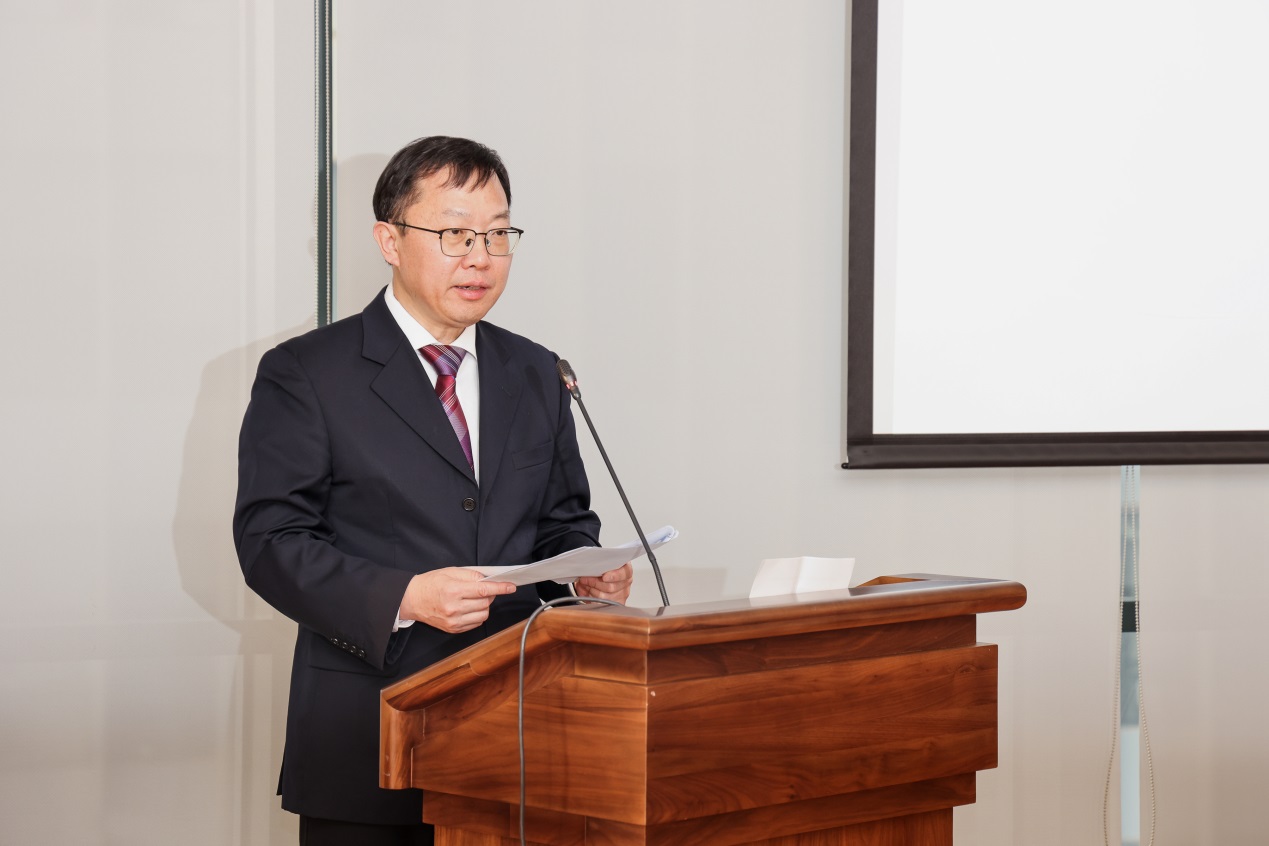
Former Deputy Minister Yi Xiaozhun said in his speech that this year’s World Trade Report reviewed the role of world trade in addressing some of the most urgent challenges, including maintaining peace and safety, reducing poverty and inequality, and achieving sustainable economic development. He noted that the economic rise of China and Asia cannot be achieved without the dividend brought by economic globalization. In recent years, economic globalization has been challenged by trade protectionism and geopolitical games, deeply transforming global supply chains and undermining globe trade. He believed that China should work to explore a safety mechanism that suits itself as it continues to open wider and to not forgo openness for the sake of so-called absolute security. Reinforcing the construction of multilateral trading systems and seeking cooperation that involves multiple parties remains the best option for humankind.
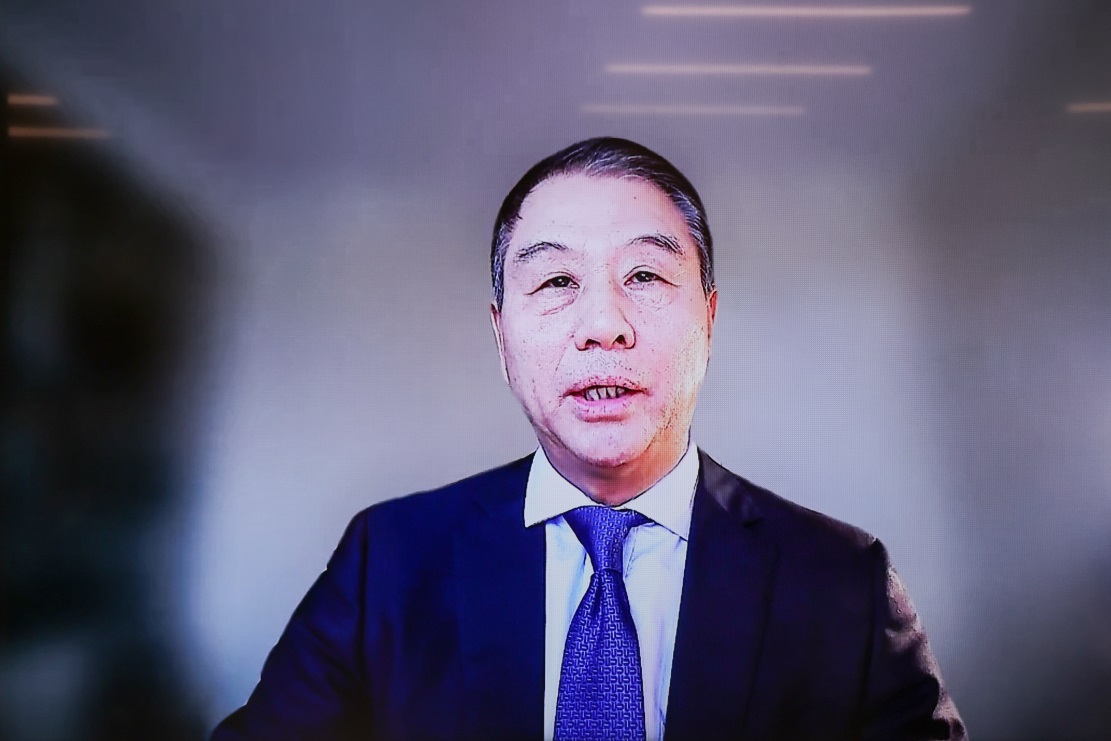
President Chongquan believed that against the backdrop of escalating geopolitical conflicts, weak global recovery process and rising tensions between Israel and Palestine, achieving re-globalization becomes more relevant. Policies featuring protectionism and internalization do not conform to the laws of economic development, nor do they accord with historical development trends. As China acts to achieve wider institutional openness in a steady manner, it will accelerate its efforts to forge a new climate of openness and build a higher level economic system of openness, and play a more active role in many platforms. Other countries should also work in joint efforts to resolutely uphold true multilateralism and safeguard the core statues and fundamental principles of WTO by involvement in WTO reform on all fronts and by supporting a multilateral trading system that is free, open and non-discriminatory.
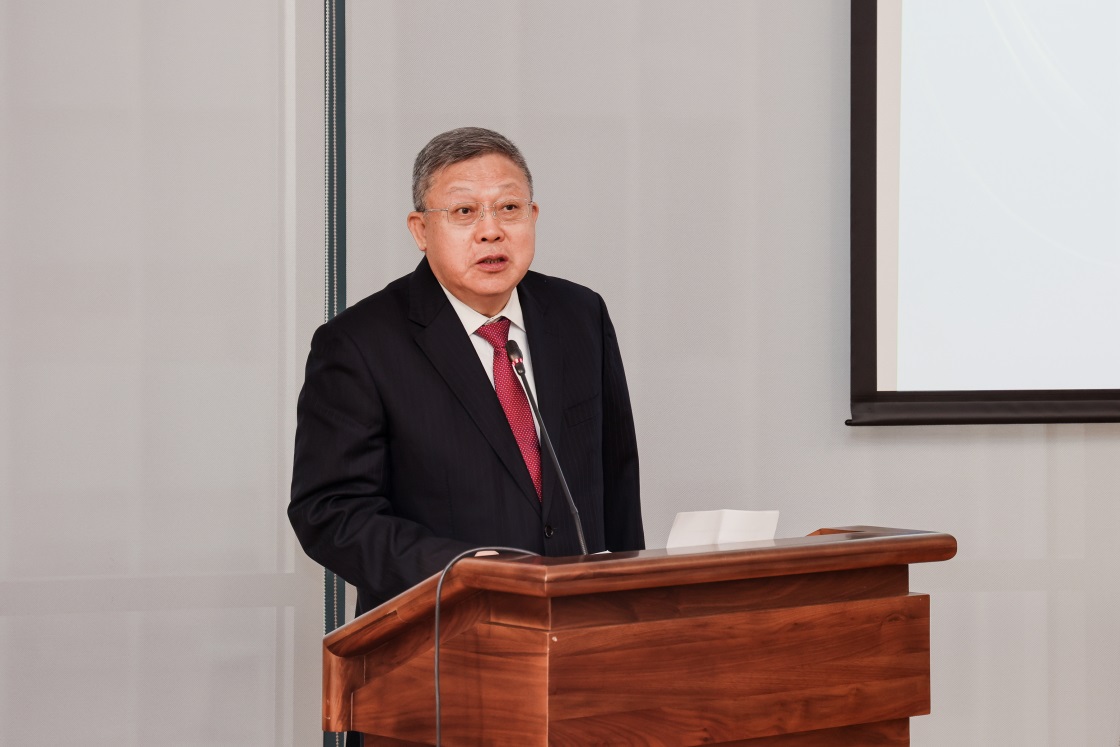
Vice Chairman Wang Qijiang pointed out that China’s wisdom and solutions to re-globalization contribute to the proposal of a community of shared destiny. China benefits from globalization, and so a strong supporter, promoter, and contributor to globalization. Resolutely safeguarding the multilateral trading system and taking part in well-rounded WTO reform display China’s determination to promote re-globalization. In a volatile world, China’s wisdom, solutions, and responsibility inject positive energy and render stability to the whole world.
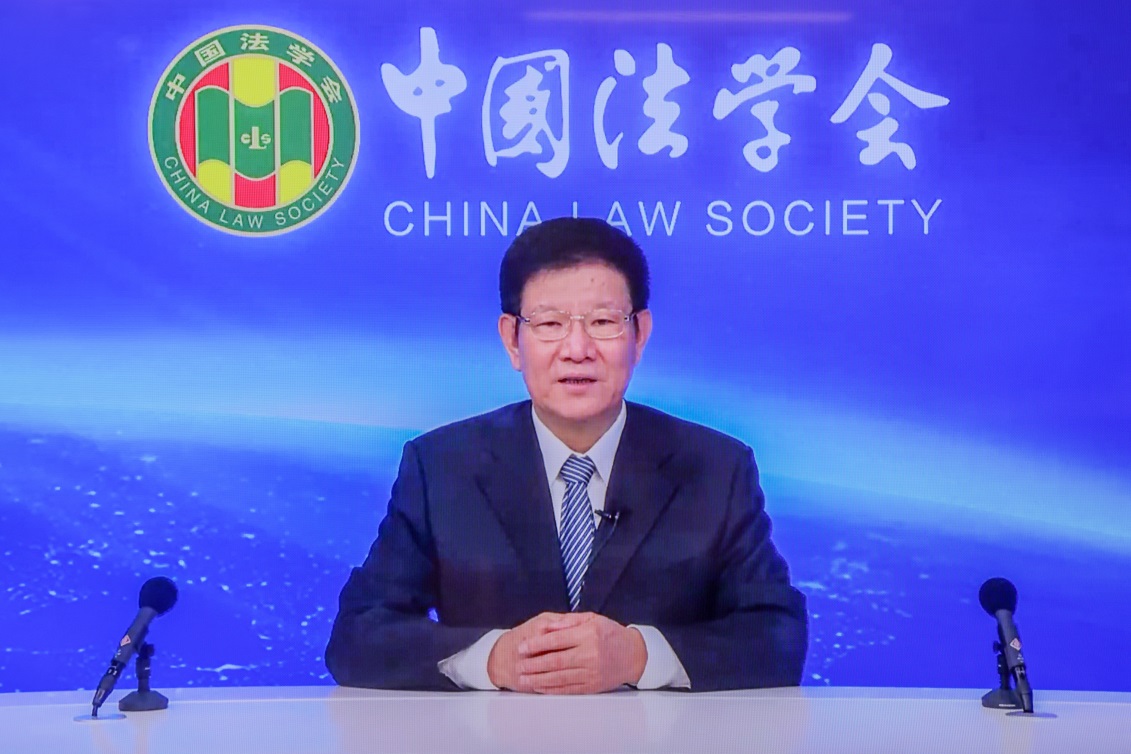
Director Ralph Ossa and CCO Victor Stolzenburg also contributed deep analyses to the World Trade Report 2023. Ralph Ossa noted that, as manifested in the report, though world trade still thrives in many aspects, still a tense situation in trade is on the rise, leading to some initial signs of division. It was also noted that trade activities help to build a safer, closer and more sustainable world.
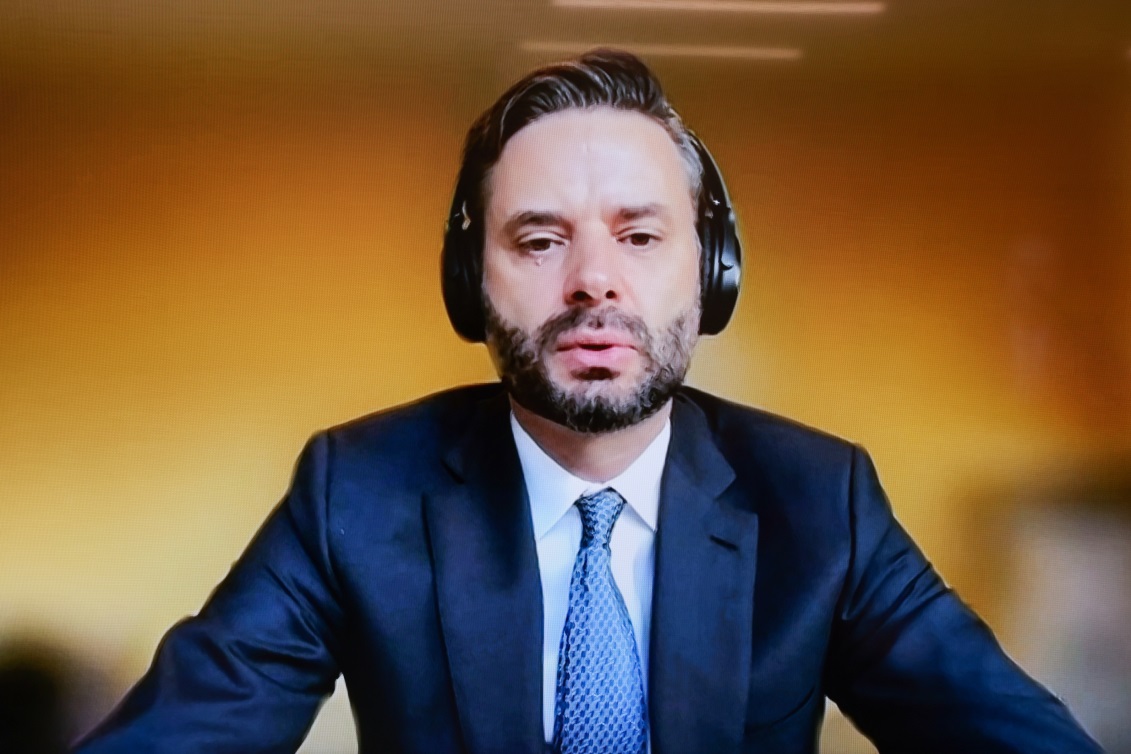
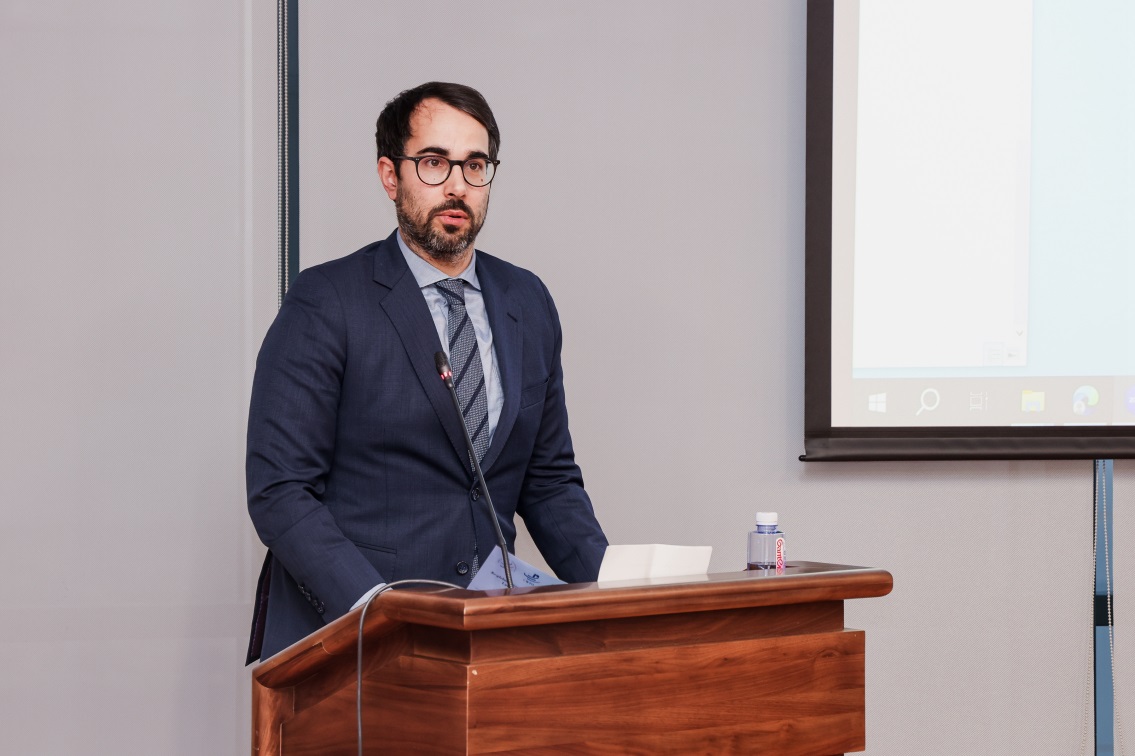
CCO Victor Stolzenburg explained in detail the roles of re-globalization in maintaining peace and safety, reducing poverty and inequality as well as protecting the environment. He concluded by saying that trade still serves as a crucial way to address major challenges, which calls for more efforts from WTO members.
Ministerial Counsellor Xu Qingjun explained that re-globalization means traditional economic globalization with three “Mores”, namely more personnel, more economies, and more agendas. WTO is now conducting reform in a gradual way to make sure the 13th ministerial meeting is more significant and targeted. In the meantime, as an important participant in the organization, China should contribute its strength in trade multilateralism.
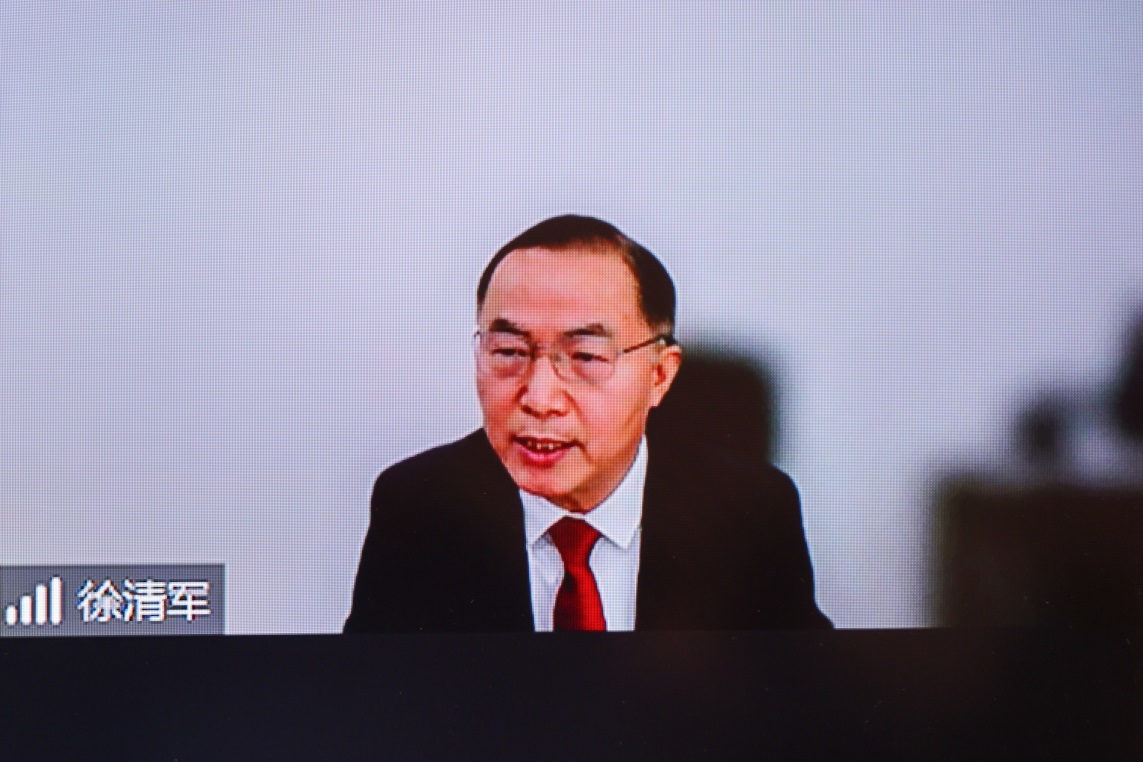
President Yu Miaojie outlined three main characteristics in current global trade, namely regionalization, low carbon and digitalization. Carbon emission reduction is a common responsibility that should be borne by all countries. China has achieved much progress in terms of developing green trade and the digital economy and taking targeted measures to reduce poverty. He finally offered concrete suggestions on policies to support China’s opening up.
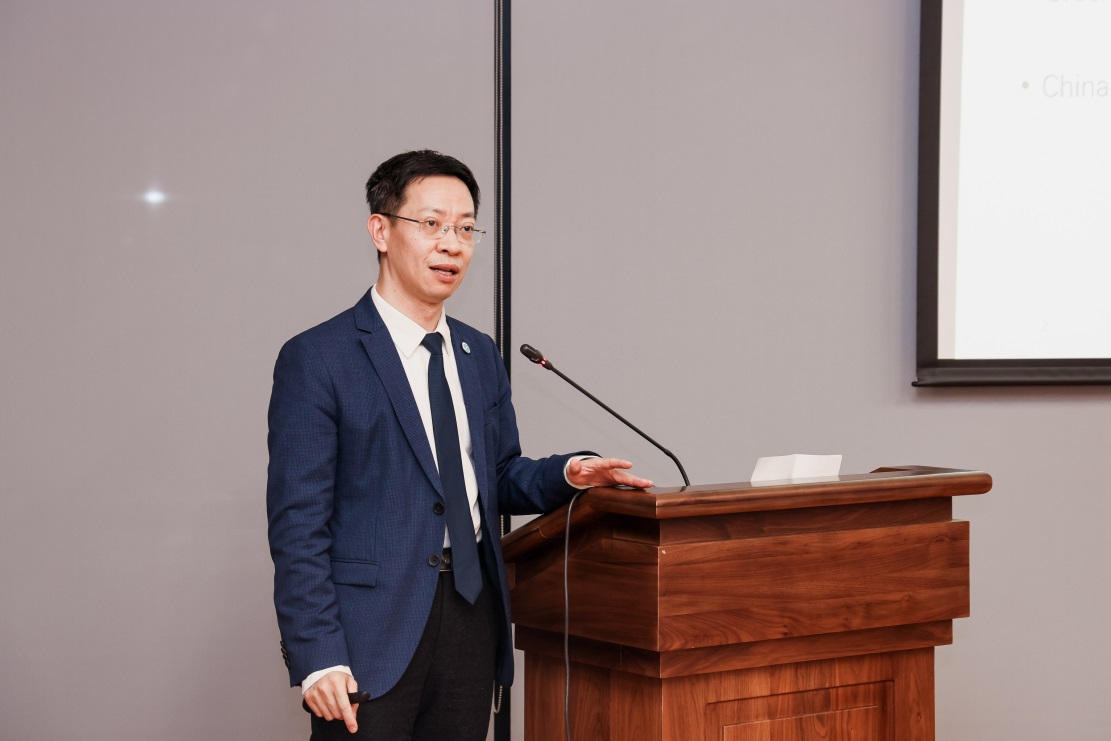
Deputy Director Zhao Peiwen claimed that the development of the digital economy and trade are a double-edged sword for global climate governance and that WTO plays a critical role in combining these two issuesThe green goals of sustainable development can only be achieved with the joint efforts of all parties.
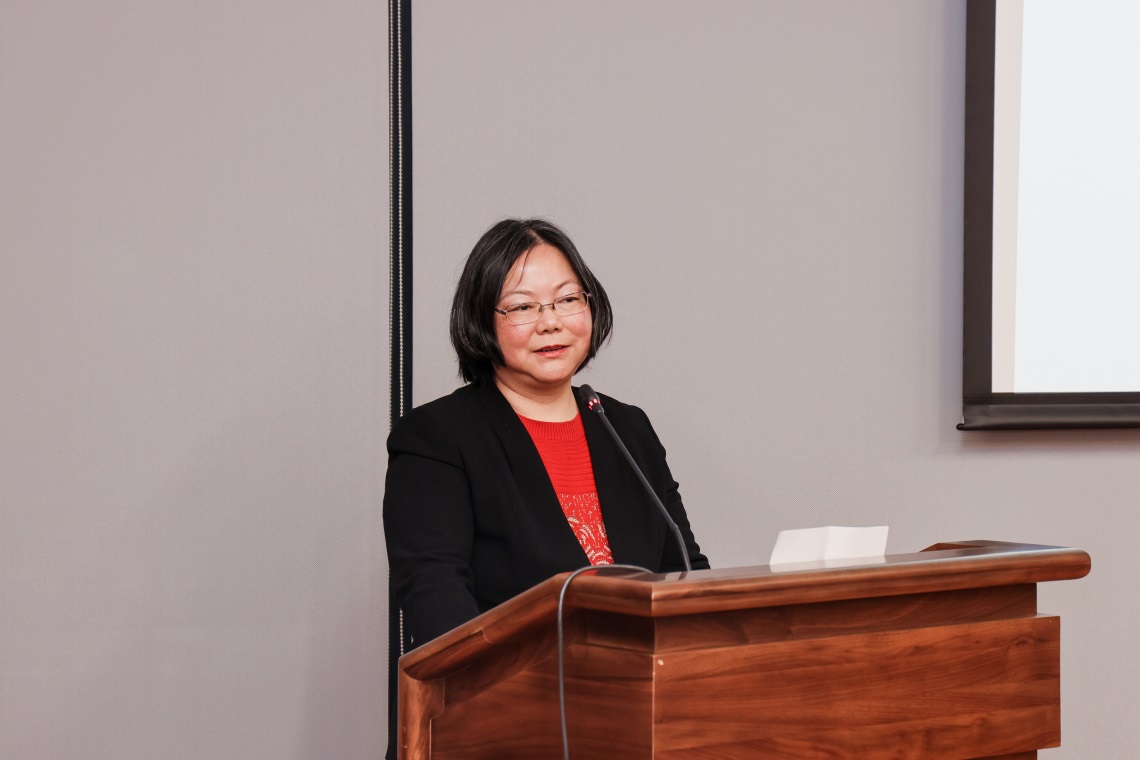
Dean Huang Zhijin emphasized that private enterprises play an important role in sustaining economic development and promoting social. Under the multilateral trading system, the transformation of private enterprises from observers in negotiation into participants in the process should be promoted.
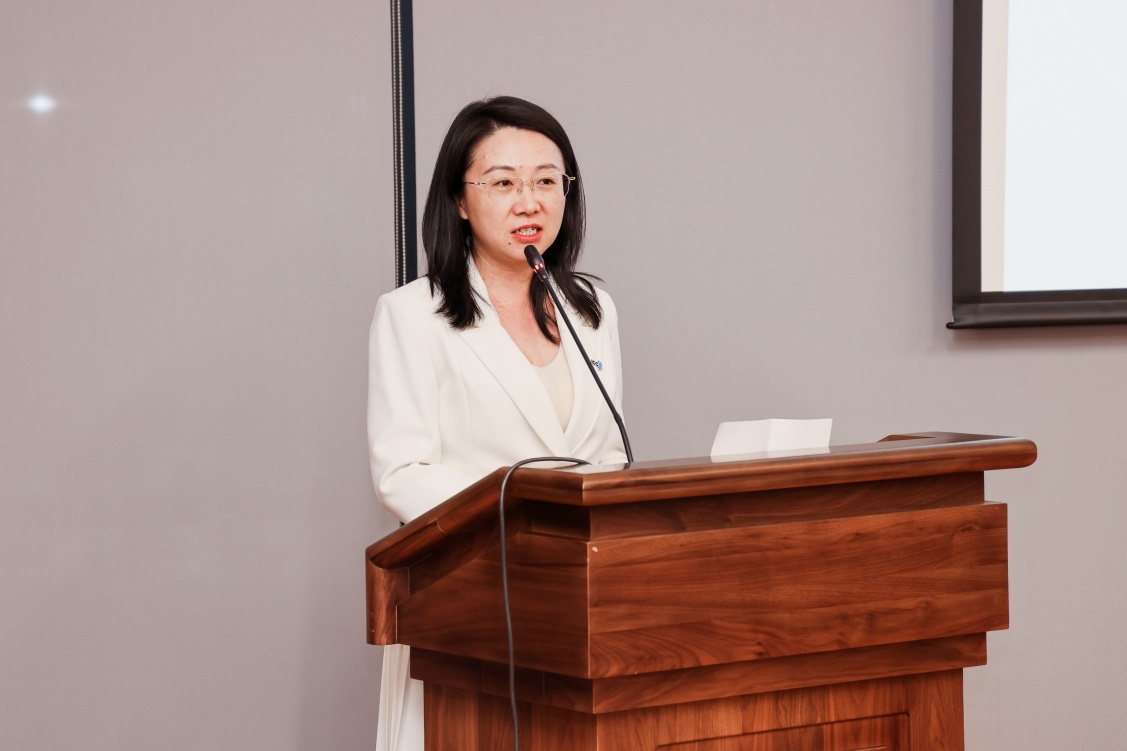
Professor Cui Fan believed that the rapid development of China’s economy has become a key variable that affects the world economy and trade. Economic safety being part of national security, WTO rules should be regarded as a set of criteria to judge whether economic or trading measures should be used to resolve security-related issues. Concerning the inclusive uniformity mentioned in the report, consideration should be made to reach a balance between uniformity and inclusiveness when WTO rules are formulated.
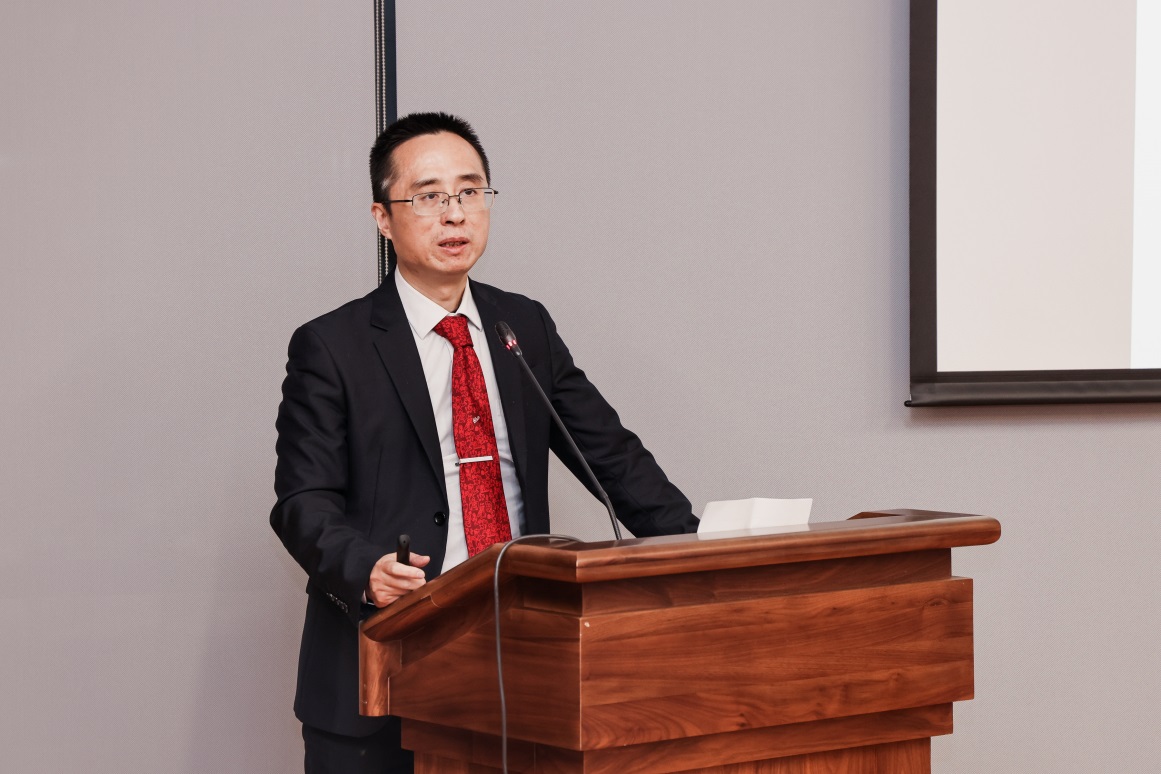
In conclusion, Professor Zhang Lei made a closing speech. He noted that it is imperative to strengthen trade and cooperation to effectively deal with major issues on safety, inclusive growth, and climate change, all requiring a vibrant WTO which dares to play a leading role in reforming world trade. All parties should be fully aware of the importance and urgency in participating in WTO reform and take a proactive approach in the process of reform and rules adjustment on economy and trade.
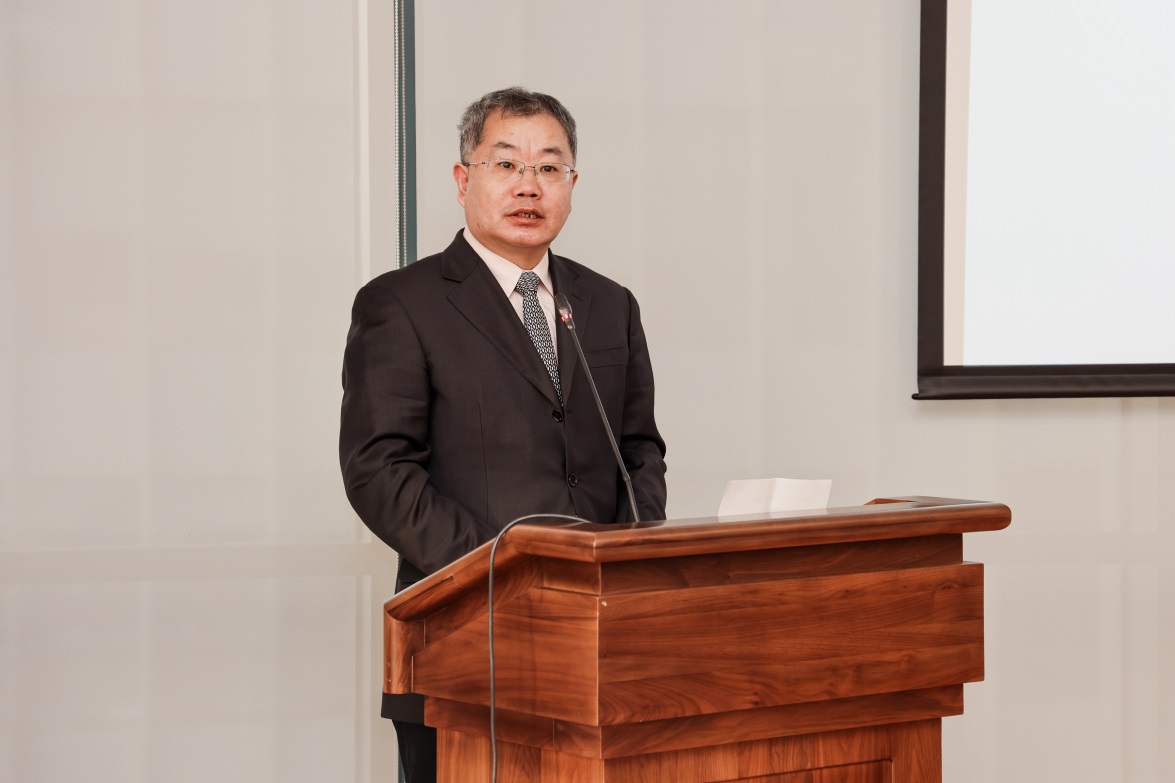
More than 100 experts and postgraduates at home and abroad attended this release conference.
Chongshan Campus: No. 66, Chongshan Middle Road, Huanggu District, Shenyang Postcode: 110036
Puhe Campus: No. 58, Daoyi South Street, Shenbei New District, Shenyang Postcode: 110136
Wusheng Campus: No. 38 Youth Street, Baita District, Liaoyang City Zip code: 111000
Copyright by Liaoning University, Shenyang, China
